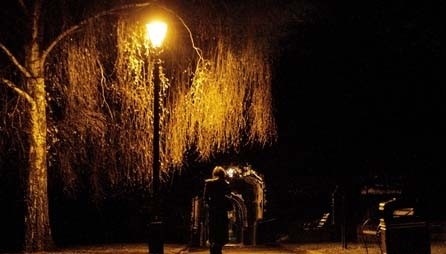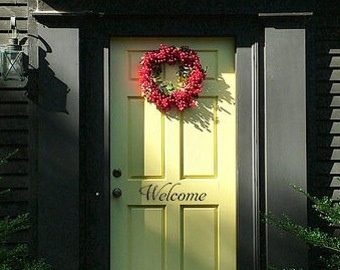Muslim women who are scientists, doctors, engineers, police officers, firefighters, American soldiers, lawyers and even Judges, exemplify the diversity of Muslim women in the world.
These examples demonstrate the fact that Muslim women can – and do – follow their dreams and strive for achievements outside the home. Such pursuits undertaken by modern Muslim women are not foreign or new. In the time of the prophet Muhammad, Muslim women assumed many roles; they were entrepreneurs, scholars, poets and more.
But, part of the beauty of Islam is the way women are valued. Our worth does not stem from what we accomplish in terms of careers, or how we stack up against men – rather our femininity itself is valued and we elevate ourselves via piety.
In our modern society, women who are”housewives” or “stay at home moms” often feel a sense of inadequacy. No doubt when asked the question, “What do you do?” they often answer with dread, and are met with awkwardly incredulous, blank stares. The questioner often is not sure if they should express sympathy for the homemaker or provide encouragement that they can be so much more.
Muslim women however, have no reason to feel deficient. We’ve been created female and don’t need to try to be like men to prove anything! In Islam, a “housewife” is not considered inadequate, instead her inherent value is acknowledged and appreciated.
In Islam, it’s made clear that it is no accident that humans come in two forms. Although distinct, males and females are equal in the sight of God as He explained in several places throughout the Quran. For example:
“Never will I allow the work of [any] worker among you to be lost, whether male or female; you are of one another.” (Quran 3:195)
In nature, we see creatures in pairs, from plants to animals. Reproduction of most species occurs via two mates. Human beings have also been made in pairs, like halves that complete a whole. This completion is possible, due to the differences between the male and female.
Men and women are complimentary, physiologically and functionally.
While one might argue that men have certain advantages over females, and much of the last century (take a look at the feminist movement) has been in large part about proving women can do whatever men can do – the fact remains that women are the ones who can do what men cannot.
I personally don’t understand how this has been overlooked. The female’s unique qualities have been all but utterly disdained by feminists who often forsake marriage and motherhood in favor of corporate advancement, for example.
In Islam, due to the special, divinely endowed nature of women, special status is afforded to females. Take a look at one example from the Quran:
“O mankind! Reverence your Lord, who created you from a single person – created, of like nature, its mate, and from them both, dispersed many men and women;- reverence God, through whom you demand your mutual (rights), and (reverence) the wombs (that bore you): for God ever watches over you.” (Quran 4:1)
It is made clear here that men and women are of like nature, but women are singled out in this verse for reverence. This is because it is through women both males and females come into the world.
When Mary, the mother of Jesus was born, God said regarding her:
“The female is not like the male.”(Quran 3:36)
Because, Jesus the messiah , one of God’s chosen messengers was to be developed in her womb, born through her labor and pain, raised in her enveloping care, and fostered with her wisdom and piety – all without any male intervention or contribution.
God could have informed us about Jesus without mentioning his mother, but instead, an entire chapter is named after her (chapter 19). She was not merely a vessel for delivery of the Messiah. Her lofty character was a critical part of the birth and development of Jesus Christ.
We see the importance of motherhood in this and many other examples from the Quran and the Prophet Muhammad. A mother is not deficient if she is primarily a mother, wife and daughter. In Islam she is continuously revered.
The prophet Muhammad said that mothers are most deserving of their grown children’s companionship. Even caring for her in her old age is an honor, rather than a burden.
Mothers lovingly struggle to bring generations into the world. Mothers nourish and nurse future leaders, inventors, heros. Mothers comfort, reassure and support the best of humanity. Mothers are the backbone of the human race.
But women are not only valued as mothers.
Islam honors women as daughters and affords great status to parents who raise their daughters well.
Women are also highly regarded for being wives. Spouses are described in the Quran as garments for one another. (Quran 2:187) This description represents the closeness, protection, intimacy, shielding and adornment spouses provide one another. No one feels complete without his or her clothing. Husbands and wives fulfill each other’s vital needs and provide a sense of wholeness and satisfaction that is difficult to attain in any other way. Marriage is described in the Quran as follows:
“And of His signs is that He created for you from yourselves mates that you may find tranquillity in them; and He placed between you affection and mercy. Indeed in that are signs for a people who give thought.” (Quran 30:21)
In my life, it was Islam that enabled me to truly appreciate being a female, and it brought out my femininity in many ways.
I love knowing now that I am meant to be a woman. That my Maker does not discriminate between men and women. That I have equal opportunity to achieve success, and that I am not held to standards I am not made for.
I don’t feel pressured to prove my worth to anyone. I don’t feel inadequate or inferior. And I will strive to endow my daughters with this knowledge, appreciation and sense of worth, so they can grow up confident and comfortable in their own skin.









